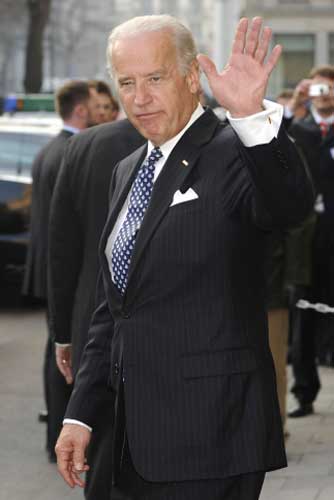Biden offers Iran incentive to drop nuclear project

Your support helps us to tell the story
From reproductive rights to climate change to Big Tech, The Independent is on the ground when the story is developing. Whether it's investigating the financials of Elon Musk's pro-Trump PAC or producing our latest documentary, 'The A Word', which shines a light on the American women fighting for reproductive rights, we know how important it is to parse out the facts from the messaging.
At such a critical moment in US history, we need reporters on the ground. Your donation allows us to keep sending journalists to speak to both sides of the story.
The Independent is trusted by Americans across the entire political spectrum. And unlike many other quality news outlets, we choose not to lock Americans out of our reporting and analysis with paywalls. We believe quality journalism should be available to everyone, paid for by those who can afford it.
Your support makes all the difference.President Obama had whetted European appetites for some welcome changes in US foreign policy when he said in his inaugural address that US leadership was back. Yesterday, in a keenly awaited speech in Munich, his Vice-President, Joe Biden, set out to show just how comprehensive those changes could be. His message was one of co-operation, consultation and openness to new ideas.
"I come to Europe," he told an audience that included the German Chancellor, Angela Merkel, the French President, Nicolas Sarkozy, as well as politicians from both sides of the Atlantic, "on behalf of a new administration determined to set a new tone in Washington, and in America's relations around the world." With regard to Russia, Mr Biden said it was high time to "press the reset button" on relations after a "dangerous drift" in recent years. While not hinting at any immediate readiness to retreat on developing missile defence, he made several qualifications. He stressed that the target of US missile defence was Iran, and said that the project would proceed subject to effectiveness and cost – neither, in current circumstances, to be taken for granted. He also said that the US would proceed in consultation with its Nato allies and Russia.
Addressing Iran directly, Mr Biden reiterated the "hand" that President Obama had "stretched out" but said Iran faces a stark choice. "Continue down your current course and there will be pressure and isolation; abandon your illicit nuclear programme and support for terrorism and there will be meaningful incentives."
Mr Biden's speech also contained direct challenges to Europe. If the "good news", as Mr Biden put it, was that the US would be doing more in the world, the "bad news" might be that it expected the rest of the world to do more. This included the hope that European countries would help to resettle some of the detainees from Guantanamo Bay. He did not, however, as some had expected, make a direct appeal for Europe to send more troops to Afghanistan, noting that the Afghan mission is currently the subject of an urgent review by the administration to clarify its objectives.
Join our commenting forum
Join thought-provoking conversations, follow other Independent readers and see their replies
Comments